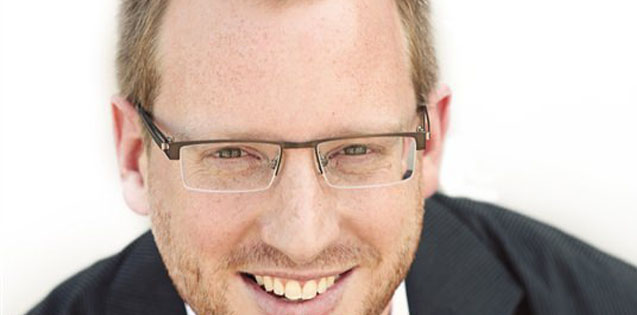Today we begin a series of posts on Boundless called “Five Questions” in which we interview influential Christians who are making a difference in their corner of the world. We begin the series with Tim Challies (pronounced CHALL-eez), a longtime supporter of Boundless and one of the most popular Christian bloggers in the world.
Tim started Challies.com back in 2002, but initially, he only used it to post pictures of his children for his family members to see. However, in 2003, he began writing daily posts about the Christian life, and with stunning regularity, he has continued to do so for 11 years now. In the meantime, he has also written three books, co-founded a publishing company, works as a pastor, and is raising three children with his wife, Aileen.
I’m pleased to have Tim over for a visit at Boundless to answer five questions, in which Tim starts with some really good advice for Christians who desire to have influence.
1. You’ve become one of the most influential Christian bloggers out there. What advice do you have for Christians who want to develop an online platform to share their faith?
Be careful. As time has gone on, we have seen more and more resources dedicated to building an online platform. I always find myself a bit hesitant when I encounter someone who is highly motivated to build themselves a platform. Some do it out of the noblest intentions and use the platform to God’s glory, but many more do it for lesser reasons and only mean to glorify themselves. Whatever you do, surround yourself by people who will be unimpressed by you and who will tell you if you are beginning to think too highly of yourself. “Faithful are the wounds of a friend…” (Proverbs 27:6).
2. This past year, you did a “False Teachers” series on your blog that stirred up some controversy. Any regrets?
On the whole, no, I don’t have regrets. My real focus was on false teaching, and the false teachers were just a necessary component of the series. After all, we tend to be far more interested in people than ideas. I found the series very interesting and learned a lot from doing it. Primarily, I learned that Satan hates the church and will oppose it in every generation. The only surprising thing about false teachers would be if there were none of them. If I do have regrets, it’s that one or two of the articles did not receive quite enough time and research (which may be evidence that, at times, I misuse my platform).
3. You write substantive posts almost every day of the week. Do you ever panic because you’ve run out of ideas?
I never run out of ideas. I do run out of excellent or fascinating ideas, but in those times I just write about something that is good or interesting. And then, as often as not, I find something I can learn and something I can apply. Even after all these years and all these articles, I find that I have little ability to predict which posts will resonate with my readers and which will land with a resounding thud. Some ideas that I was convinced were brilliant turned out to be awful, and some articles I could barely stand to look at turned out to be helpful to people. It’s a strange phenomenon, and I’ve come to expect the unexpected.
4. How do you manage to pastor your church and write so prolifically?
I try to keep life fairly simple, though I do find that as time goes on, I am having to scale back on certain things. I have been wanting to work on some new books, but have a lot of trouble finding the time. I have recently scaled way back on my travel schedule to focus more time on the church. I feel like I can handle the daily routine of writing alongside church and family, but that too much beyond that starts to become over-reaching. From Randy Alcorn I learned the value of re-purposing material — sermons can make great blog posts, blog posts can be extended into book chapters, and so on.
5. How do you want to be remembered when you’re gone?
First, I would want to be remembered as a Christian. My life would be in vain if there was no lasting record of my faith and the impact it had on me. Second, I would want to be remembered as a devoted husband who was kind and faithful to the end. Third, I would want to be remembered as a committed father who loved his children and raised them to love and fear the Lord. Fourth, I would want to be remembered as a imitable pastor, worthy of the office of elder. I guess I would want to be remembered more for who I was than for the things I did.
We’d like to extend a big thanks to Tim for taking the time to chat with us. If you’d like to learn more about his blog, books, and ministry, make sure and visit Challies.com.












